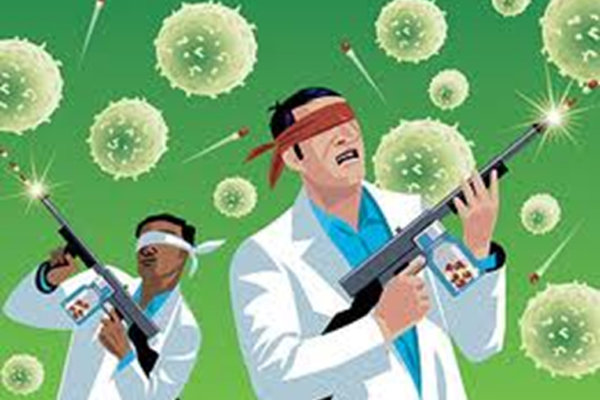War on Cancer , Prevention is better than the cure.
Close to 50 years after the “War on Cancer” was first declared ( 1971) , we have donated billions of dollars fighting the so called good fight. The National Cancer Institute has spent some $100 billion on research and treatment during that time.
As a result of the billions put into cancer research, we do know a lot about what causes cancer, how cancers grow, and how cancers spread. We have ideas about how to stop cancer. But the process of translating laboratory advances into the clinic has been agonizingly slow. This because cancer isn’t one disease, but a general term for many diseases that have some things in common and many things that vary from one type of cancer to another. Have there been significant gains? The end results of treating advanced cancer over the years has been disappointing to say the least. The statistics don’t lie.

We should also understand that for the most part, cancer is a disease of aging, and we aren’t close to solving that problem. We’re finding that cancer survivors are developing second and third cancers. So there are going to be significant limits on what cancer treatment can accomplish. I don’t think that we’ll ever defeat aging in our lifetime. But there are Superagers out there who defy the odds .
Let’s accept some personal responsibility. The leading cause of cancer death is lung cancer. We know what causes it, and we know how to prevent it. But people continue to smoke and vape. So …Stop smoking and that death rate will drop by 85 percent.
What about obesity? It’s pretty clear that about one-third of all cancers are related to being overweight. We’ve read the publicized data, and yet we’re getting fatter by the year.
Why is it we don’t like cancer prevention? Isn’t prevention better than cure? Cancer researchers know that hepatitis B is the leading cause of liver cancer and HPV is the leading cause of cancers of the cervix, anal canal, and contributes to many head and neck cancers.If we’re not curing cancer effectively with the vast amount of money thrown at it, we surely know how to reduce the risk preventatively, but as a society, we’re not doing that either. I think that everyone in the cancer field feels badly that we haven’t done better with the resources given to them.
But at the end of the day, we’ve got to accept responsibility for our lifestyles. And we have to understand and accept that we’re not going to stop aging. So we’re not going to stop getting cancers. Optimizing your Health may be your safest bet in the War on Cancer.